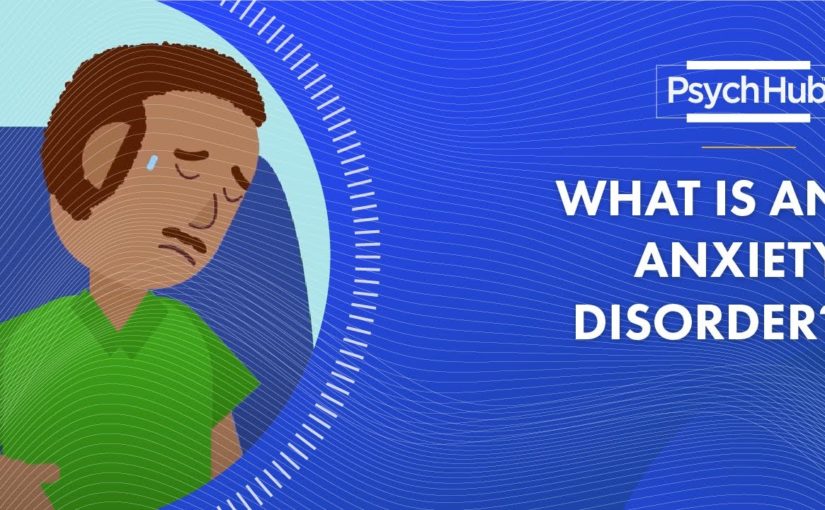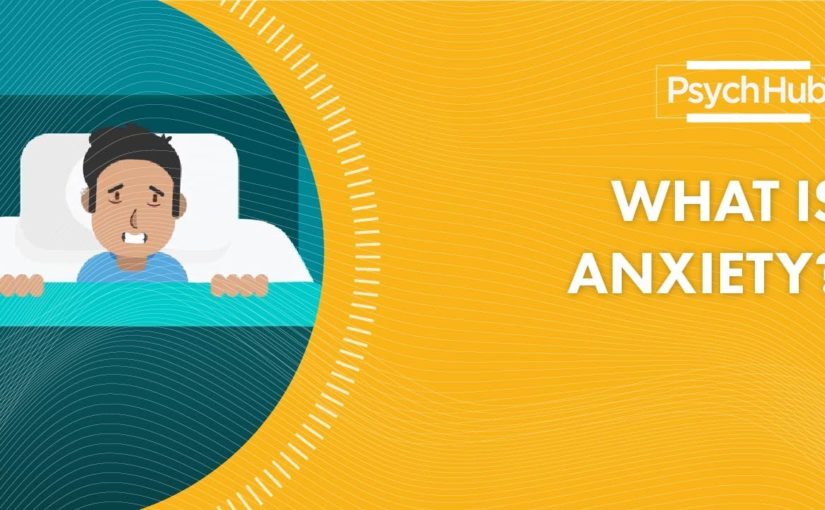The Symptoms of General Anxiety and Panic Disorder
This is Joseph. His mind is constantly racing and it’s racing
with negative thoughts. He worries about everything – from saying
the wrong thing to a friend, to wondering if he will lose his cellphone, to questioning
if he is eating healthy enough. He also thinks about the bigger problems,
like if his daughter is safe at school, or how to make sure she has a good future. These may seem like typical worries that everyone
has, but for Joseph, they consume his life and he is living in constant anxiety and fear.
Caroline also worries quite frequently. She is in a high-stress job that demands a
lot of her time. She is also a parent. The worry and stress are natural, but sometimes
she becomes overwhelmed and breaks down, becoming ill for a short period of time. Joseph and Caroline both decide it is high
time to go and see a doctor. They want to better understand and help to
put an end to these unwanted feelings. The doctor tells Joseph he has been diagnosed
with General Anxiety Disorder, also known as G.A.D. While Caroline was diagnosed with Panic Disorder. Before the diagnosis, they never knew the
difference between the two. G.A.D and Panic Disorder are both Anxiety
Disorders with unique differences. G.A.D is a mental condition that is characterized
by excessive and uncontrollable worry about everyday life events and the future. Panic Disorder is characterized by panic attacks
that can occur for seemingly no reason at all.
They both can also happen during or directly
after a traumatic event. There is not one single cause for GAD. It is believed to be caused by a complex interaction
of genetics, brain chemistry, personality factors, and the environment in which the afflicted were raised. Traumatic experiences and stressful life events
can also trigger a person to develop GAD. The symptoms for G.A.D are as follows: Constant
high levels of worry about everyday things or things that do not normally warrant anxiety. Inability to let go of your worries even if
you know they are irrational or unrealistic. Feeling restless, irritable, or on edge. Problems concentrating. Problems with sleep – either difficulty getting
enough sleep or sleeping too much. Being easily frightened or startled.
People with GAD may also experience the following
physical symptoms: High levels of tension in your muscles. Regular headaches and nausea. Low levels of energy or constant fatigue. Increased sweating, trembling, or heart rate. Panic Disorder is defined as having recurring
and regular panic attacks, often without any apparent cause. Panic attacks bring about a sudden rush of
intense fear and panic, whereas General Anxiety Disorder is a slowly increasing and constant feeling of apprehension and unease about both the present and the future. Signs of a panic attack are Intense feelings
of panic and stress. Trembling and shaking. Sweating. Increased heart rate. Difficulty breathing. Numbness or tingling in hands and feet. Feeling dizzy or light-headed. Chest pain. Feeling unreal or detached from yourself. Due to the terrifying nature of a panic attack
and the feelings of pain in the chest area, many people experiencing them for the first
time think that they are having a heart attack, or that their life is in danger.
An attack can last from a few minutes to an
hour, and after it’s over, some people recover quickly and never experience another. Others may start to have them more regularly
and the experience can be so frightening that they constantly worry about when the next
one will occur. The symptoms of General Anxiety Disorder and
Panic Disorder can successfully be reduced or controlled using medication. For GAD, therapy and counseling can be helpful
in becoming aware when your worries are unrealistic or exaggerated, along with instilling positive
thoughts instead of negative ones. For Panic Disorder, medication and therapy
can help manage symptoms so that you can calm yourself down when you feel an attack is coming on.
Anxiety disorders can affect anyone, no matter
how strong or successful. Getting treatment for anxiety does not mean
admitting weakness but means choosing to live life on your own terms, without letting
those worries hold you back. If you know someone who struggles with anxiety,
telling them to “stop worrying” or to “get over it” will not help. Oftentimes, they know that they are overreacting
and behaving irrationally. However, the fear, panic, and feelings of
anxiety are still very real. Don’t judge, and let them know you are there to support them without adding any additional pressure. Simply spending time with them and showing
that you value them despite their anxiety will have a bigger effect than you can imagine. This video is supported by BetterHelp which
is a website where you can talk to one of over 2000 licensed therapists right away.
If you use the link in the description you
will get a 7-day free trial and you will really help us make more videos for people who are facing difficult life challenges. Thank you for watching…




























